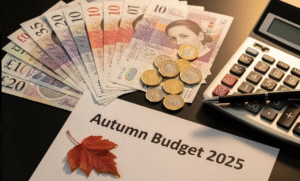Contents
Familiarising tax legislation relevant to their business is certainly a must for eCommerce suppliers. One kind of tax both physical and e-retailers need to take care of is the value added tax (VAT) regardless of which market they belong to, whether business to consumer (B2C) or business-to-business (B2B).
Online merchants need to understand and settle their VAT requirement as early as possible so they can stay on the right side with the tax authority and avoid the risk of penalties.
In this article, we are going to delve deeper into eCommerce VAT, including when to register, what happens after registration, the consequence of not meeting VAT requirement, VAT rate overview, introduction to VAT’s effect on transit fees, international VAT, the new European eCommerce VAT system and its pitfalls, and other helpful FAQs and advice.
Overview of eCommerce VAT
VAT is one of the types of consumption taxes which both physical and online stores apply as an additional cost to their goods or services. There is a certain threshold on which eCommerce sellers become obliged to be UK VAT registered. Only when they are VAT registered are they able to charge VAT for their supplies, not upon launch.
There is not much difference in the UK VAT policy between eCommerce and traditional brick-and-mortar stores, except when some goods or resources are in digital form. Take, for example, music or video downloads and Google eBook publication. Digital e commerce package is imposed with other kinds of UK VAT regulations.
UK VAT price takes a part automatically in the product’s price value, not listed separately. For example, a product priced at £10 with £2 VAT should be simply displayed with the price value of £12 in any point of sale.
When to Register Online Business for VAT?
UK VAT and distance selling thresholds differ. E commerce businesses in Northern Ireland, England, Scotland, and Wales are subject to UK VAT registrations when their taxable turnover exceeds £85,000 in a year. This threshold applies to brick-and-mortar stores as well on a rolling 12-month period, not on a calendar year basis. VAT taxable turnover is the gross revenue of a business for 12 months that is non-VAT exempt.
The distance selling threshold in the UK is different. For the current tax year, the distance selling thresholds are at £70,000. E commerce businesses trading outside the UK generating sale profits more than this amount will subject the business to VAT obligations.

Once online businesses anticipate that their VAT taxable turnover will exceed the threshold for the next 30 days or have gone beyond that amount for the last 12 months, it is mandatory that they register for UK VAT. Small businesses benefit from VAT flat rate scheme when they earn less than £150,000 a year. The flat rate scheme allows them to simplify their record-keeping processes, as they will not need to detail every sale and invoice and gives them a lower-than-standard rate advantage.
Whilst Northern Ireland follows the same selling threshold, it follows its own Northern Ireland protocol, especially the changes released on Gov.UK article last 1 January 2021. With the Great Britain ceasing to be a member state of EU Union, Northern Ireland remains being considered as part of the union for VAT purposes.
The registration can take some time, usually up to 10 weeks, so any business should best prepare for VAT registration once their turnover almost reaches the threshold. Aside from the penalty, late registration is considered non-compliance and can be very detrimental to an online business.
Generally, some stores within the threshold do not have to register; hence, they do not charge VAT. But it is a different case for an online company that does digital products transactions to EU countries. They will have to register for VAT in every country they trade with regardless of whether they meet the threshold or not.
On the other hand, an eCommerce supplier using online marketplaces (OMPs) is subject to VAT registration when they are an overseas seller and are under the following terms:
- the OMP gives them their customers’ VAT details;
- they store and sell goods to Northern Ireland customers;
- they store goods in EU, and their total turnover from Northern Ireland consumers goes beyond £70,000.
Post Brexit changes may subject EU businesses with UK consumers to VAT registration too. Any overseas sellers that import goods directly into the UK need to register with HMRC and be subject to UK VAT obligations. Overseas sellers must comply with all the post Brexit changes in all their transactions.
What Happens After Registering for VAT?
After VAT registration, e Commerce businesses have to comply with HMRC’s requirement to detail every information, supply business customer VAT invoices, and accomplish VAT return on time. For those that use online marketplaces, there are some further conditions and circumstances.

They will need to supply their VAT registration number to all the online marketplaces they use for trading, which the OMPs will verify and post on their website. These businesses can only create trading accounts using their VAT registered business name, email, and VAT number in the OMP.
Since VAT comes as an additional price burden to goods, it depends on the eCommerce supplier’s circumstances on how they adjust the price value. They may either take in the cost or increase the pricing to maintain their gross profit. Consulting tax advice professionals can provide helpful guidance and answer all their questions regarding VAT depending on their circumstances.
What Happens if an eCommerce Company Fails to Meet VAT Requirement?
Non-compliance with VAT requirements can negatively affect an eCommerce supplier, whether a UK or overseas seller. Consequences range from penalties to removal from OMP, depending on their circumstances.
For UK e-businesses, HMRC may charge a penalty or report their movement to OMP, which will then result in their removal from the marketplace. Overseas sellers, on the other hand, may either be penalised, asked to pay cash bonds or deposits as backdated payment from any point of sale, or be compelled to point a VAT advice representative based in the UK.
Legend Financial is one of the state’s most trusted and usually appointed VAT solutions representatives. They provide the most comprehensive advice and execution to meeting VAT requirements so eCommerce businesses can avoid any VAT issue, such as the burden of penalties or removal from the OMP.
Which VAT Rates Should You Charge?
The HMRC charges three levels of VAT rates for different kinds of goods and services—namely, standard, reduced, and zero-rate. Generally, the UK government charges a standard VAT rate of 20% for a good number of supplies in England, Wales, and Scotland.
Sales rated at a reduced 5% VAT are supplies related to energy, health, and welfare, such as elderly mobility aids, cycle helmets, children’s car seats, and many others, even including nicotine gums.
Other supplies are zero-rated, which means they are not charged with VAT at all, although they will still have to be reported as part of sales in the eCommerce business’ quarterly report. This happens when the customer is VAT registered, which means the seller may have the choice to value goods at a zero rate. Zero-rate goods usually include books, baby clothes, and more.

Zero-rated VAT goods and services should not be confused with VAT-exempt products. Whilst they are not charged, their figures are still declared in the gross profit records and included in the VAT return. Tax-exempt goods are entirely non-taxable, which means e-sellers do not include their sales records on VAT return.
Northern Ireland has a different zero-rating criterion according to the Brexit readiness notice, otherwise called VAT Notice 704, announced on 1 January 2021 publication. This 1 January announcement applies to Northern Ireland alone. Northern Ireland businesses that sell goods to visitors from outside Northern Ireland and the EU may be allowed to impose zero-rate on their goods, according to some circumstances.
How Does VAT Affect Delivery Charges?
When online stores charge delivery costs, the VAT rate is applied to it the same way as the products sold. So, for instance, when a product is standard rated, the VAT price on transit is at 20% as well.
5% rate of delivery fee is imposed for the reduced-rate resources, and apparently, no VAT on the delivery costs for zero-rated resources as well as those that are set for free delivery, being already included in the item’s price.
International VAT
The generic UK VAT rate is imposed by EU businesses that trade in the UK; an international company, on the other hand, that sells outside Europe deals with more complicated VAT rules.
Generally, these international online merchants can not charge VAT to their consumers outside the EU member state, which means the products are automatically zero-rated. But since there are exemptions, it is crucial to confirm with HMRC first so nothing will be amiss regarding their VAT system compliance.
Pan European member states or non-members impose different VAT policies. Take for example Germany, which imposes a threshold or distance selling threshold of £70,000. When the business’ 12-month period turnover from its German customers goes beyond that amount, then that UK eCommerce supplier will have to be registered for VAT in the country and impose VAT rates based on the German VAT legislation rules.
Exported products may be automatically zero-rated and then imposed tax in accordance with the VAT policies of the recipient’s state or country. Online businesses in the UK best secure accurate information from HMRC or avail themselves of a UK accountant team that can guide them through the world of VAT and its challenges, as well as serve as an intermediary on their behalf.
New EU VAT eCommerce Measures
The new rules for VAT impact UK e Commerce businesses in great ways. These new rules in place are intended to make their tax matters more convenient and simplified.
The changes started as Mini One Stop Shop (MOSS), which initially just applies to digital goods and services. Gradually, MOSS paved the way for more products, not just in digital form, to have simplified and new rules for VAT processes, as opposed to the troublesome manner of having to be registered for VAT and then pay for VAT duties in each EU country traded.
OSS and Import OSS (IOSS) VAT scheme were then implemented, both of which are optional. The scheme aims to enable e-merchants to deal with their import VAT payments from their EU B2C sales in one fell swoop.
The OSS scheme is technically one of the electronic platforms wherein eCommerce businesses can pay their VAT duties based on the rates the EU member state consumer imposes. These changes generally apply to merchants that sell to non-taxable people in any of the EU member states. The OSS return is due quarterly, so businesses are required to submit it by the conclusion of the next quarter’s first month.
The Import OSS (IOSS) special scheme, on the other hand, applies to imports from non-EU countries. These changes simplify the import VAT in effect. Before this scheme, customers submit their customs declaration and can only reimburse VAT when the imports arrive in the EU.
With IOSS, sellers can automatically collect VAT right at the time customers pay for the item. They can then declare the VAT once through their monthly IOSS returns, as they are submitted on a monthly basis.
Pitfall Of EU eCommerce VAT Rules
The EU reported a whooping £166 billion loss last 2011 due to undeclared Great Britain and Northern Ireland VAT. This shows how loose the loopholes are in EU eCommerce VAT rules, which as of now, are being taken care of by the tax authorities, actively tracking down anyone who might attempt to avoid their UK VAT obligations.
They are actively tracking merchants in online marketplaces too, most especially Amazon, Etsy, and eBay. Violators are subject to a fine, backdated payment, a formal investigation even including their emails, and worse, removal from the OMP.
One way to combat this widespread VAT fraud is by removing LVCR consignment relief or low value consignment relief and replacing it with alternative VAT treatments that work better with low value consignments, except in Northern Ireland according to the Northern Ireland Protocol.
Whilst low value consignments relief serves to be beneficial for businesses that import goods at a low value—less than £15— many businesses were found to have been abusing the system.
Get VAT Service from Reliable Accountants
Ecommerce VAT is not a complicated and tedious aspect for businesses when they secure a reliable accountant to handle the matters. Legend Financial has the most sterling team of accountants in the UK who know very well how to grow eCommerce sellers and help them comply with the necessary legal requirements. Please feel free to reach us today!
References
A Guide to VAT for Ecommerce Businesses. (19 March 2022). Retrieved from Go Forma: https://www.goforma.com/business-resources/vat-guide-ecommerce-businesses
EU & UK ecommerce VAT reforms. (n.d.) Retrieved from Avalara: https://www.avalara.com/vatlive/en/vat-knowledge/uk-and-eu-ecommerce-vat-reforms.html
VAT on ecommerce sales. (23 December 2020). Retrieved from QuickBooks: https://quickbooks.intuit.com/uk/blog/vat-on-ecommerce-sales/
E-commerce VAT in the EU has changed. Here’s what you need to know. (1 July 2021). Retrieved from Sage: https://www.sage.com/en-gb/blog/ecommerce-vat-eu-need-to-know/
E-commerce VAT: What You Need to Know. (23 April 2019). Retrieved from Mile IQ: https://mileiq.com/blog-en-gb/e-commerce-vat-need-know
European E-Commerce VAT: Everything You Need to Know. (4 April 2019). Retrieved from Prisync: https://prisync.com/blog/e-commerce-vat/
Businesses selling goods in the UK using online marketplaces. (n.d.). Retrieved from Gov.UK: https://www.gov.uk/guidance/vat-overseas-businesses-using-an-online-marketplace-to-sell-goods-in-the-uk
EU VAT e-commerce package. (n.d.). Retrieved from Gov.UK: https://www.gov.uk/government/publications/eu-e-commerce-package/eu-vat-e-commerce-package
A guide to VAT for e-retail businesses. (n.d.). Retrieved from Inform: https://www.informaccounting.co.uk/blog/a-guide-to-vat-for-e-retail-businesses








